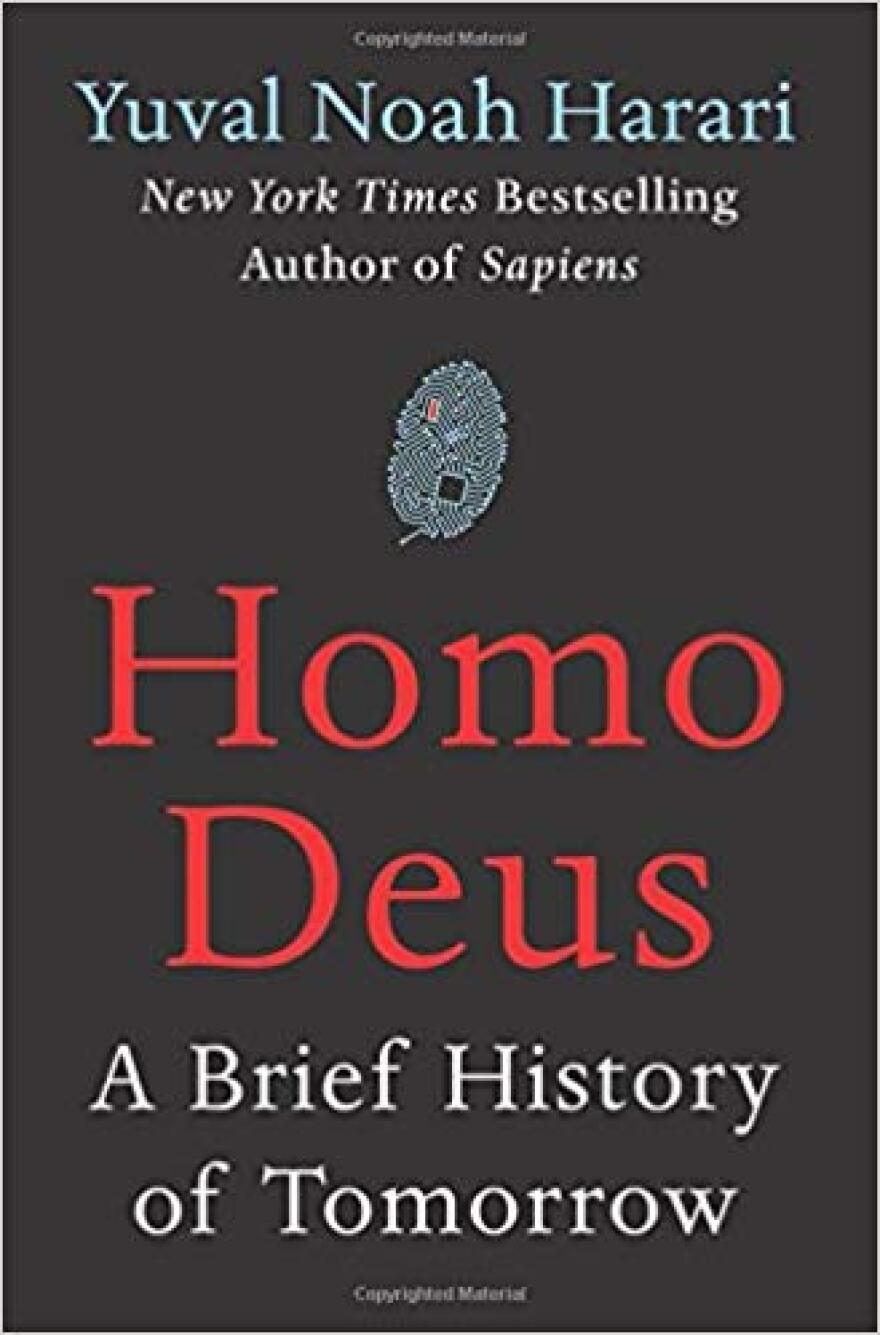Hello, everyone. I am Richard Brookman the Consultant for Southwest Kansas Library System and the owner and co-host of the podcast ComicPop Library.
In today’s Radio Reader BookByte, I am going to be discussing Yuval Noah Harari’s book entitled Homo Deus: A Brief History of Tomorrow, published by Harper in 2017. An interesting point for this book is that it’s first edition was published, in Israel, in 2015.
The cadence of the author’s writing kept the book flowing really well. Word of caution, this book is printed on photo print paper which is heavier than regular stock paper, so if this book slips out of your hands at night because you have drifted off, it might knock you out!
Harari’s love for science comes through loud and clear in this book. His tone for some will feel very direct and to the point with no regard to the person’s feelings that might be reading his book. Some might say the book comes across “cold”. But again, it is easy to read and flows nicely and they “cold” analytical aspect of the narrative didn’t bother me.
Harari states that as Homo Sapiens we have essentially 3 things to conquer: famine;
plague; and war.
Harari states, and this is where the “cold” aspect of the narrative comes into play, that on a whole we have beaten each of these possibilities. He does understand that in today’s world that there are still pockets of each of these categories, but as a whole percentage wise, humans have beaten these three fears. When you look at his percentages, he makes a strong case.
Harari states that companies and the individuals that run them believe that three concepts are what we strive for in life: immortality; happiness; and Godlike powers.
Harari discusses that with all the advances in science that humans, as we are now, will be obsolete. We will be cyborgs or have nano-tech in our bodies to help us stave off illnesses and make us stronger, which in turn should make us happy.
Harari discusses animists that believe that we are descended from reptiles. Since we are animals ourselves, we should co-exist with animals. Supposedly animals are separated from humans because humans have souls. However, when scientists have studied animals and then studied humans for evidence of a soul, the scientists cannot find a soul in either animals or humans.
Harari puts forth that there are three realities that exist to explore: objective reality where things exist independently of our beliefs and feelings; subjective reality which depends on one’s personal beliefs and feelings; and intersubjective reality which depends on communication among many humans rather than on beliefs or feelings.
Harari also discusses the humanist characteristics that humans currently partake in:
Orthodox humanism wherein each human is unique individual possessing distinctive inner voice; socialist humanism where one stops obsessing about himself and thinks about others; and evolutionary humanism which takes the Darwinism approach regarding survival of the fittest in human society. Weed the chaff and keep the strong. Sound familiar?
Harari talks about how in each of these humanistic approaches religious texts no matter which one you prescribe yourself to is used as a controlling method.
New religions will come about: techno-humanism wherein humans are no longer needed so our future should be in creating the Homo Deus, a superior human model that will continue to keep just ahead of technology advances; and dataism where everything is in data flows and an entity’s worth is derived of what they contribute to the data flow.
Harari states that this book is not to be looked upon as a prophetic work, but as a start to discussions that will lead to decisions regarding how humans will progress to the future. It’s a sobering title and gives way to very uncomfortable thoughts on what could be lying ahead for humans.
I’m Richard Brookman for Radio Reader BookBytes.







